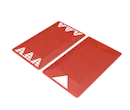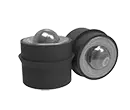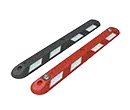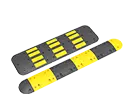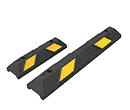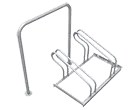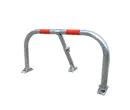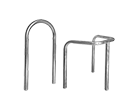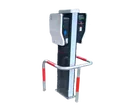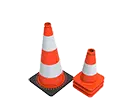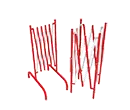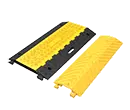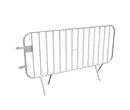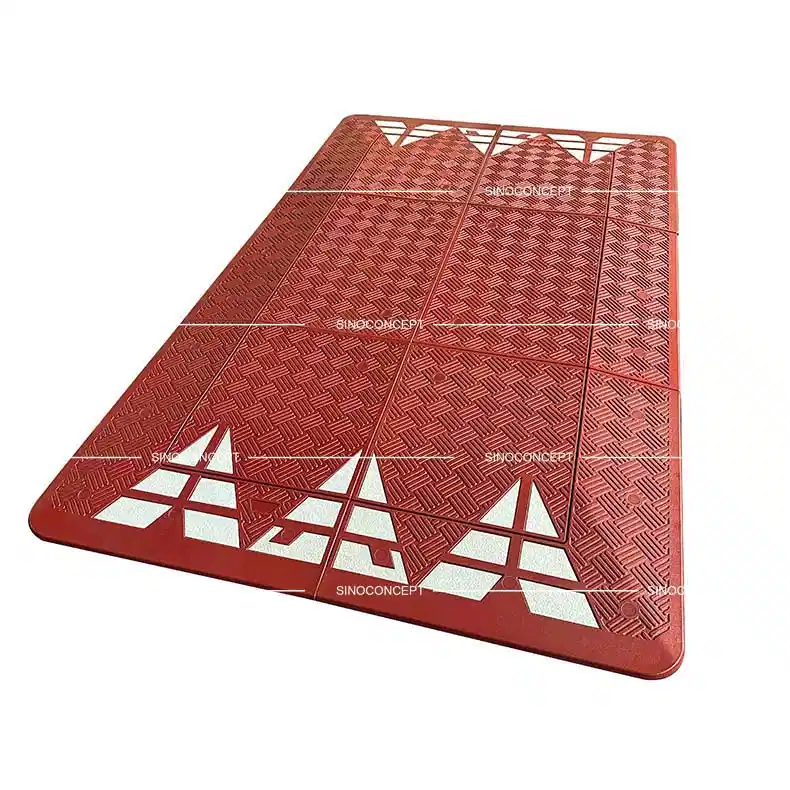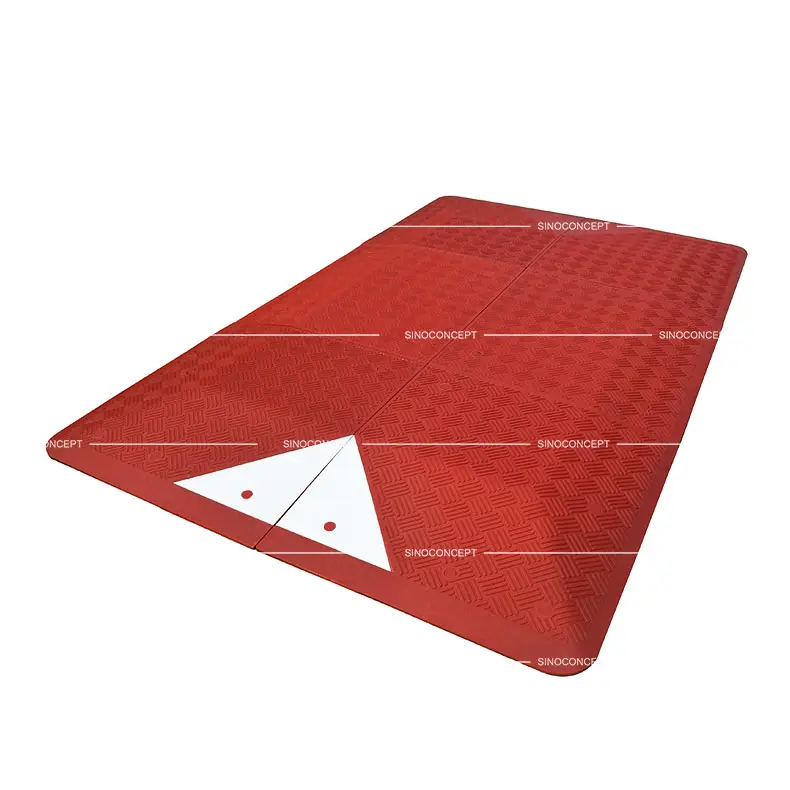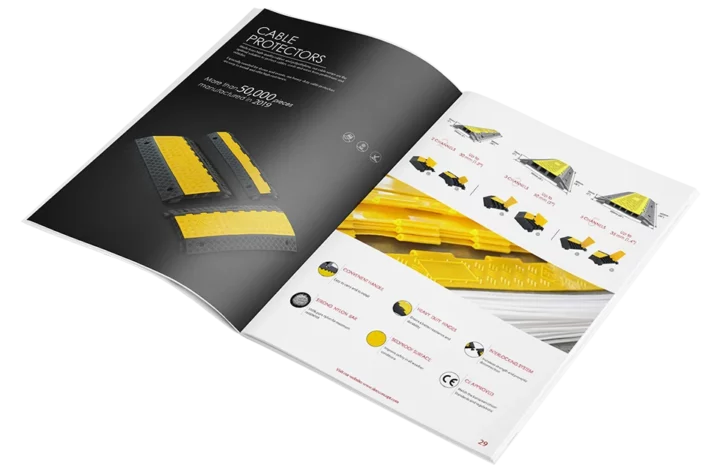Speed cushions and speed tables
A speed cushion, also known as a “speed table” or a “speed pillow”, is mainly intended to be installed on public roads as road safety devices to slow down traffic. The speed table shape is a bit raised from the centre to gently make vehicles drive at a low speed to increase public road traffic safety.
-
Speed cushion Europe
$362.30 – $556.30 -
Speed cushion Belgium
$362.30 – $556.30 -
Speed cushion UK
$362.30 – $556.30
Why choose rubber speed cushions and tables by Sino Concept?
Purchase directly from us and benefit from our expertise in manufacturing sustainable rubber speed cushions since 2009. By having our factories in China, we can offer vulcanised rubber road tables at low prices.
If you are interested in purchasing speed pillows directly from a manufacturer, please contact us to tackle speeding issues on local public driveways or roadways.
And if you are interested in complementary products, don’t forget to check out our lane dividers!

Road table colours and custom options
Our standard road tables are available in red or black. But we can manufacture tailor-made speed control devices to meet your expectations fully. For example, we can:
- Modify colours;
- Or integrate the logo of your choice.
Suppose you need speed reduction equipment to calm traffic in private residential areas. In that case, you should look at speed ramps, speed breakers, speed humps and event equipment, such as cable protectors, that we also produce in our factories.
Indeed, we can adapt to different types of traffic calming techniques.
Undoubtedly, red is the most popular speed table colour in Europe because of its bright colour. For example, in the United Kingdom (UK), red road cushions are a common view on city streets.
We also attach white arrow-shaped thermoplastic reflective road marking films to our road pillows to secure optimal visibility day and night.

A traffic calming expert team at your service
What are the advantages of working directly with a manufacturer in China led by a European team?
At Sino Concept, we are a dynamic team at your service, and we have acquired the following:
- Flawless know-how in the manufacture of rubber products;
- Expertise in the field of logistics to meet delivery deadlines.
We also provide additional services such as the necessary fixing kit or full transport to your destination in Europe or worldwide. Please contact us for any particular inquiries or information on our pricing.
We are delighted to assist you with our traffic safety product range, from road bumps to cable protectors.
Are you wondering about how to arrange the transportation?
You do not have to worry: We at Sino Concept have over ten years of experience handling logistics.

Road speed tables at attractive prices
Do you need to save costs on your traffic calming equipment?
Decrease supply chain costs and make Sino Concept your direct manufacturer of traffic safety equipment and street furniture.
Please get in touch with us for any quote request, or if you need any information or advice related to traffic safety supply, we will be happy to assist you.
Good to know: Our priority is to be competitive and offer low-cost speed reduction solutions. We do not profit from the transportation costs when you put us in charge of the logistics.
Do you need road tables in a different colour? Or do you need particular thermoplastic reflective road marking films on your speed tables?
Please contact us for any special inquiries and get a low-price solution with our premium street tables to slow down city traffic.
What to know about traffic speed cushions?
Speed cushions or speed tables are slightly wider than the space between cars’ wheels but narrow enough so that the ambulances, buses and fire trucks can operate without any impact on their speed.
On the contrary, regular vehicles must face this traffic calming device and drive over the centre.
We manufacture road tables varying from widths of 1.6 meters to 1.8 meters with several models:
But we can guarantee that speed cushions from Sino Concept offer one of the best quality-price ratios.
If speed cushions reduce accidents on public roadways without interfering with fire trucks or public transport vehicles, you might need traffic devices that interfere with that kind of vehicle. For that, we also manufacture speed bumps and humps.
Are you looking to purchase vertical road calming equipment directly from a manufacturer?
We at Sino Concept have manufactured vulcanised rubber speed cushions since 2009 in our factories in Qingdao, China. Led by a European team, we offer efficient and operational customer service and speed cushions at competitive prices.
Cut intermediaries in distribution chains and buy road cushions directly from us. Thanks to our expertise in manufacturing rubber traffic control products, we provide economical road humps with flawless quality for long-lasting public vertical traffic calming measures.
Discover our road cushion selection above to get reliable and cost-effective traffic calming and traffic management solutions.
Please contact us or check our product pages for more information on standard speed table dimensions or sales conditions. We will happily assist you with our traffic control devices and supply the right equipment to secure your traffic control plans.
Traffic calming rubber speed cushions for public roads by Sino Concept
To prevent slipping risks, our road cushion table has a coefficient of friction greater than 0.55 (measured using an “SRT pendulum”, Skid Resistance Tester).
With their non-slip surface, our speed cushions are an excellent choice to force speed limits on any public driveway or roadway.
With the unique anti-slippery texture of our road cushions, motorists, bicyclists, and pedestrians will no longer have to worry when crossing over our road cushion models.
Indeed, the significant reduction in speed assured by our Sino Concept cushions enhances pedestrian and driver safety.
Improved safety on the roads, thanks to our rubber traffic-calming speed cushions
Speed cushions are one of the leading products we have been manufacturing for over twelve years. We export worldwide, especially in Europe, to countries such as the United Kingdom (UK), Belgium, France, Ireland and Poland.
For example, you can spot cushions on the city streets of London or Manchester.
With our strict quality control, our road table quality is top-notch. Moreover, we have taken feedback from our clients for over ten years to ensure that our cushions adapt to any vertical traffic control measures.
Moreover, our cushions will not have too intense or uncomfortable a rubber odour. We have taken the rubber odour seriously, and therefore, we have carefully selected our rubber raw material suppliers.
Would you be interested in viewing our complete product selection? Have a look at our catalogue to discover our broad product selection.
For further information on our sales conditions or products, please contact us. We are delighted to assist in each step of the purchasing until you receive the goods and even after.
Environmental Impact
Speed cushions are typically made from materials like recycled rubber, plastic, resin, or sometimes asphalt. Using recycled materials helps reduce their environmental impact, but the production process still requires a significant amount of energy and resources.
The overall environmental footprint depends on where the materials are sourced and how they’re processed, but opting for recycled materials certainly helps lower the impact.
Lifespan and Recycling
On average, a speed cushion lasts between 10 and 15 years, depending on traffic volume and local weather conditions. At the end of their lifespan, those made from rubber or plastic can be recycled, although some other materials may require specialised facilities for proper disposal, which can complicate their environmental footprint.
Impact on Vehicles
Effect on Heavy and Public Transport Vehicles
For heavy vehicles like lorries, buses, and coaches, speed cushions do not reduce speed. Their wide wheelbase allows them to straddle the cushions with minimal impact, letting them pass through without slowing down.
This design ensures that larger vehicles, such as public transport, can maintain efficient service, while the primary goal of speed cushions remains to slow down smaller vehicles.
Impact on Emergency Vehicles
Speed cushions benefit emergency vehicles by allowing quicker passage compared to traditional speed bumps. Ambulances and fire trucks can straddle the cushions, maintaining speed during emergencies while still slowing down smaller vehicles.
Impact on Regular Road Users
For drivers of smaller vehicles, crossing speed cushions can feel uncomfortable, depending on speed. The cushions are designed to slow these vehicles, promoting safer driving in areas with high pedestrian traffic.
Noise Impact
One common issue with speed cushions is the noise generated as vehicles pass over them. This can be particularly annoying for residents living nearby, especially in high-traffic areas. However, some companies, like Sino Concept, have taken steps to address this.
By using softer materials and special design features, they help reduce the noise impact, making the cushions less disruptive while maintaining their traffic-calming function.
Regulation
The installation of speed cushions is regulated by strict standards to ensure they reduce speeds without causing unnecessary disruption. In the UK, for instance, the Department for Transport provides guidelines on their design, covering dimensions, spacing, and materials.
Before speed cushions can be installed on public roads, authorisation from local authorities is usually required, and sometimes a traffic impact assessment is needed.
Maintenance is also key, as deteriorating cushions can become hazardous or lose their effectiveness. Local councils are typically responsible for regular inspections and upkeep to ensure the long-term sustainability of these traffic-calming measures.
Alternatives
Speed Humps and Raised Tables
There are other traffic-calming measures available, such as speed humps and raised tables. Speed humps slow all vehicles equally, while speed cushions are designed to allow larger vehicles, like buses and emergency services, to pass with minimal disruption, providing a balance between safety and convenience.
Traffic Calming Solutions
In urban planning, several traffic calming solutions can reduce vehicle speeds without relying on physical barriers like speed cushions. These include narrowing road lanes, chicanes, raised pedestrian crossings, speed tables, and roundabouts.
While these options often require more extensive road modifications, they can encourage safer driving and long-term behavioural changes.
Why make Sino Concept your speed cushions supplier?

Quality speed cushions for improved road safety
The raw materials used in our traffic calming pillows:
- 90% recycled rubber;
- 10% natural rubber.
The finished treatment is 100% vulcanised rubber, which provides elasticity and resistance that concrete, asphalt or hard recycled plastic (PVC) speed cushions do not allow.
Besides, thanks to the rubber structure, our cushions make less traffic noise than those above.
We especially treat our road cushion’s top layer to provide resistance to heavy traffic volume and climatic hazards.
With our special anti-UV treatment, it withstands years of ultraviolet light with ease. Indeed, harsh weather or frequent heavy traffic will not impact the excellence of our speed cushions.
Choose Sino Concept as your direct speed table supplier and have premium rubber speed pillows at attractive prices. Are you looking to save cost costs on your traffic safety equipment?
Excellent! For further information, contact our professional team in the field of road safety equipment.

Easy installation of our road cushion tables
The speed cushions are installed in 20 miles per hour (30 km/h) speed limit areas and must not compromise road users’ safety.
For example, unlike a speed ramp, a speed cushion leaves a large enough space on the side of the traffic lane for cyclists and motorcyclists to pass.
They can also be placed around a pedestrian crossing or a crosswalk to help people cross streets safely.
Moreover, our road table does not span the entire road and allows smooth traffic flow of public transport and emergency vehicles such as fire trucks or ambulances.
The speed table’s main idea is to limit the hazards without hindering the high-importance traffic.
Please note that the Berlin cushion should not be confused with our speed ramps or humps.
Speed bumps are intended for private roads and areas, while speed tables are planned for public roadways.
For any further information about finding suitable traffic calming techniques for you, please contact us.
Why are road pillows a practical choice to increase road safety?
Here is some information you should know:
- We designed our traffic calming tables to be as visible as possible so that road users can anticipate the breaking from a distance;
- According to studies, speed cushions decrease the number of accidents on the road and increase traffic safety overall;
- When cars are driving slower, they have more time to react to any changing factors on the road;
- In case of a collision, the speed reduction significantly reduces the impacts thanks to the lower vehicle speeds;
- Quality is one of our main priorities: We strictly control the quality at each step of the manufacturing process. Indeed, we follow and manage each step at our factory until the safe and secure packaging. By working this way, we ensure that you receive products in flawless condition.
Do you want to know more about us? As a manufacturer of speed bumps, wheel stops, traffic cones, bollards, crowd control barriers and many more traffic safety equipment, we can adapt our production to your needs.

